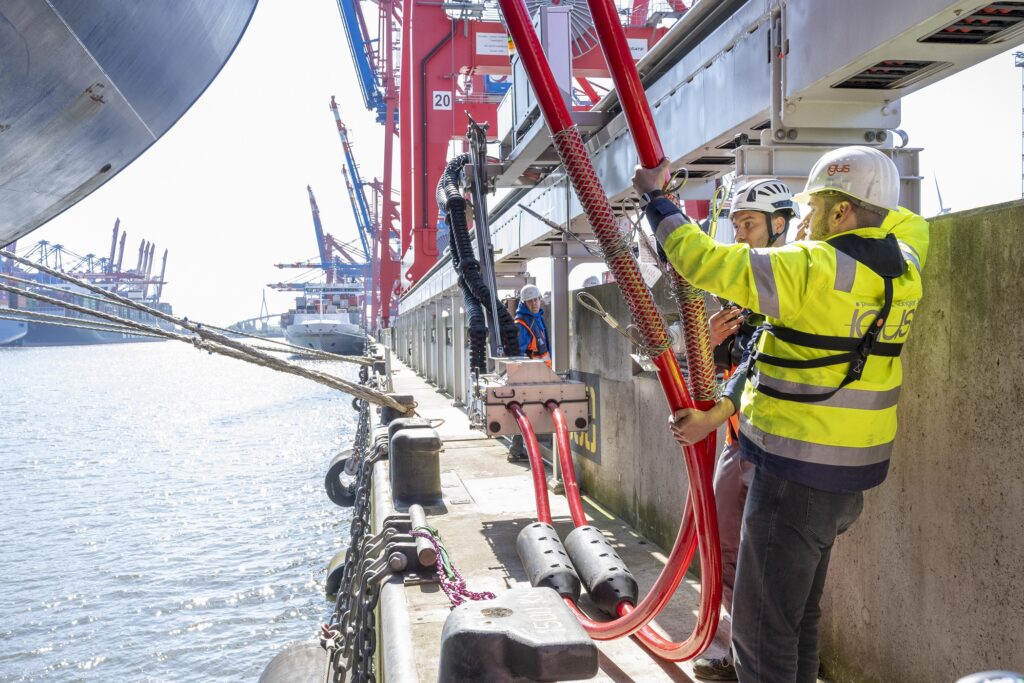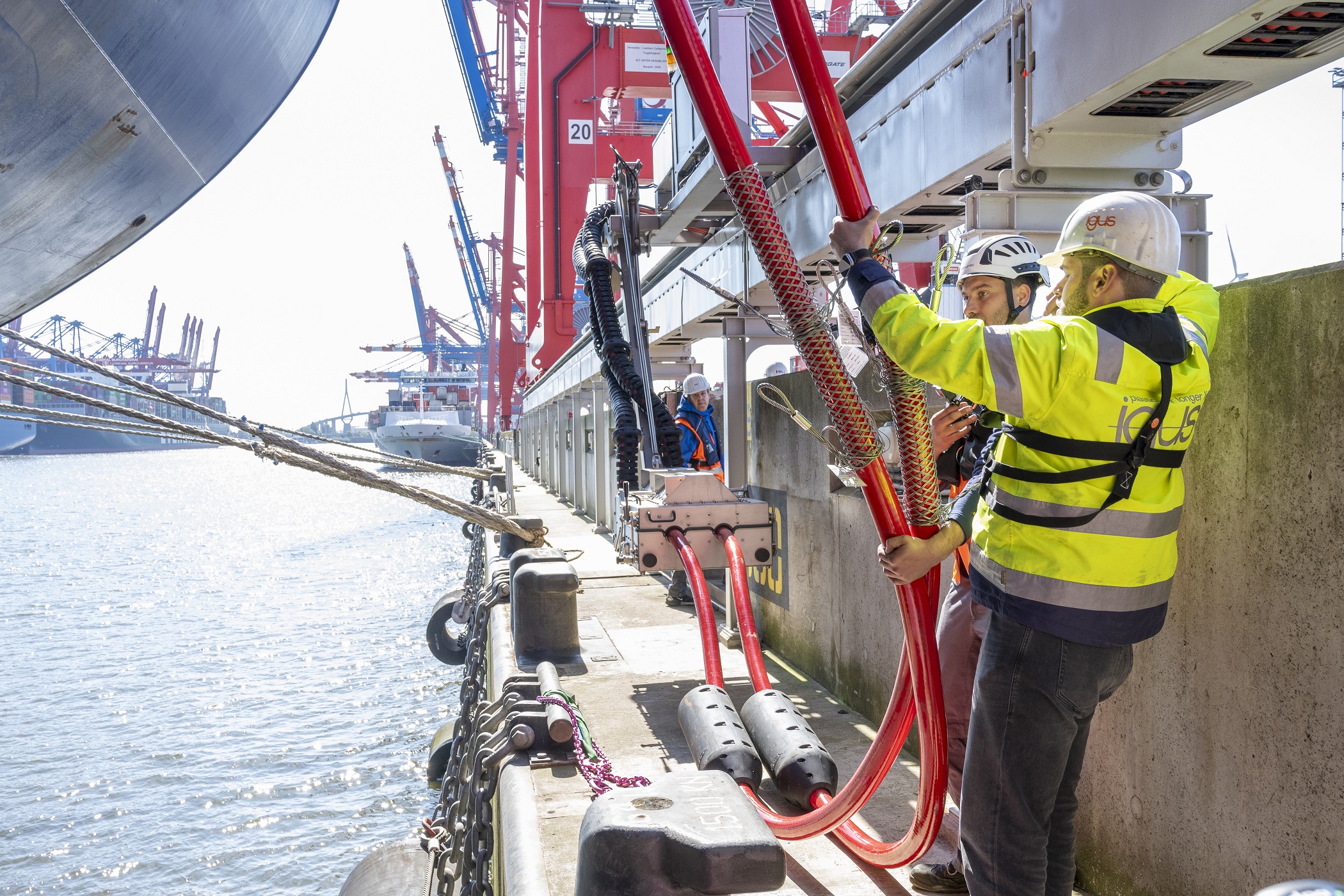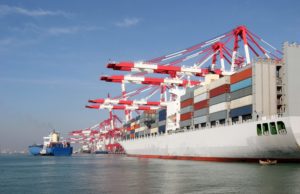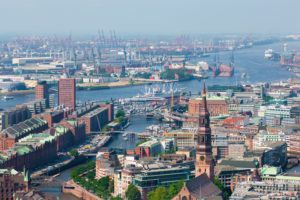
The German Port of Hamburg is now a European pioneer in shore-side power supply, and after several years of successfully supplying cruise ships in the Port of Hamburg with shore-side power, the technology is now also being used for cargo ships.
This makes the Port of Hamburg the first port in Europe to offer shore power for both container and cruise ships, as the Port informs.
Yesterday the Mv “Vasco de Gama” (IMO 9706889) of the French based CMA CGM Group became the first container ship to be regularly supplied with shore power at the Container Terminal Hamburg (CTH).
This was preceded by numerous tests with different systems and ships. In the future, container ships will also be able to draw electricity from renewable sources on land while at berth, instead of running the ship’s engines.
The technology needed in ports is being developed, while shipping companies are creating the conditions on board.
The plant, which will operate at CTH, will provide shore-side power to the terminal’s three mega-ship berths and has connections with a capacity of 7.5 MVA each. It will supply the ships with renewable energy from the public grid, supplied by HEnW.
A total of around €13 million was invested during the two-year development period; in addition to Hamburg’s share, the German government, through the Federal Ministry of Economics and Climate Protection, contributed 50 per cent of the costs.
The Hamburg Port Authority is currently concluding contractual agreements on the use and conditions with the shipping companies entitled to use the shore-side power, building on existing agreements (Memorandum of Understanding) with customers of the port of Hamburg.
The Senate intends to further expand the shore-side power facilities. In the coming months, the Hamburg Port Authority will commission further facilities, e.g. at Container Terminal Burchardkai and Container Terminal Altenwerder, and gradually expand the range of services offered.
At the same time, ship integration tests and technical inspections will be carried out on an ongoing basis in order to check the connection of additional ships and to adapt the technical conditions to the requirements.
“Hamburg is the first port in Europe to offer shore power for cruise and container ships. From 2025, all large cruise and container terminals in the Port of Hamburg will have shore power connections. This is unique in Europe and an important step towards reducing CO2 and pollutant emissions in the Port of Hamburg,” says Dr Peter Tschentscher, First Mayor of Hamburg.
“Together with shipping companies, port and terminal operators, we are on the way to more sustainability in shipping. The Port of Hamburg can rely on long-standing and reliable business relationships with valued partners. Cooperation between the various players is essential to promote decarbonisation and the spread of technology. This example shows that it is helpful to join forces with industry players to achieve common goals as a port, as a metropolis and as a shipping company,” says Dr Melanie Leonhard, Hamburg’s Minister of Economic and Labour Affairs.
“By supplying ships at berth with shore power, we are jointly making another important contribution to cleaner air and lower greenhouse gas emissions in the Port of Hamburg. The CMA CGM Group is committed to reducing its emissions and is working towards achieving net-zero emissions by 2050. Many of our ships calling at the Port of Hamburg are ‘dual-fuel’ LNG vessels, which means they can also use bio-/E-methane to further reduce emissions and improve air quality in the port,” says Emmanuel Delran, Vice President Operations Efficiency, CMA CGM Group.
“This project was launched when there were still many uncertainties regarding the use of shore-side power. The proportion of container ships in Europe capable of using shore power was almost zero. Despite these uncertainties, we decided to go ahead and pave the way for a more sustainable future. In doing so, Hamburg has raised its global profile as an innovative pioneer and doer,” says Jens Meier, CEO of the Hamburg Port Authority.
Source: Port of Hamburg.



